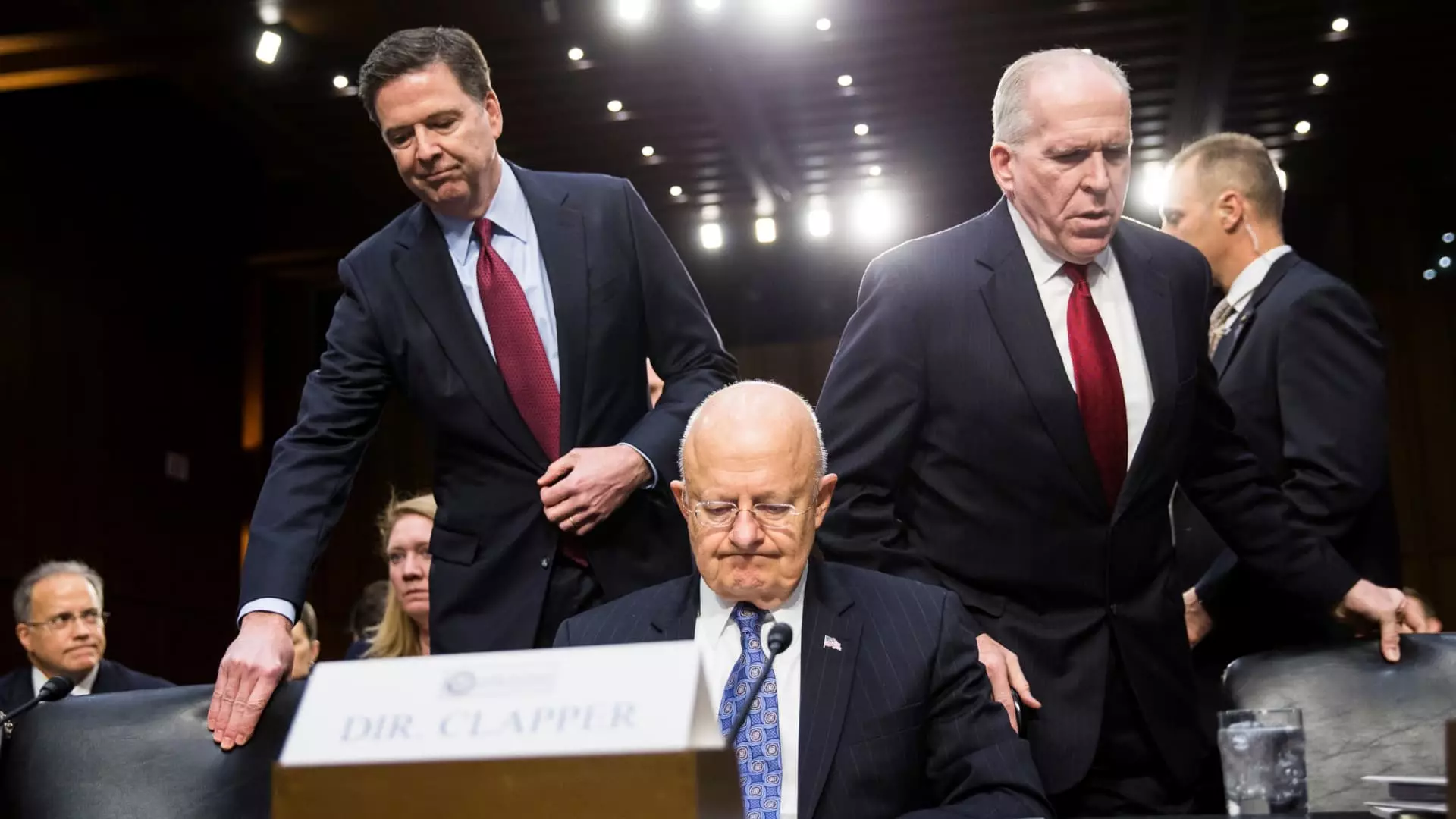In recent months, the United States has witnessed an alarming shift in how our justice system operates, with political motives increasingly overshadowing the pursuit of truth and fairness. The targeting of seasoned public servants like former CIA Director John Brennan and former FBI Director James Comey for criminal investigations underscores a disturbing trend: justice is becoming weaponized to serve partisan ends. This pattern poses a clear threat to American democracy, eroding public trust and undermining the principle that no one is above the law—regardless of political affiliation.
When leaders who have dedicated their careers to national security and public service are suddenly thrust under the cloud of investigation, it suggests a dangerous willingness to weaponize law enforcement as a tool for political retribution. The secrecy surrounding these investigations, the lack of concrete charges, and the selective leaks designed to sway public opinion all point to a breakdown in the norms that once protected our system from politicization. This erosion of impartiality threatens the foundational principle of justice—one that should be blind to political biases and driven solely by evidence.
The Hypocrisy of Selective Justice and Its Consequences
What makes these investigations particularly troubling is their apparent inconsistency with the wider context of political accountability. Historically, investigations into public officials are supposed to be rooted in credible evidence and pursued without partisan motivations. However, the current scenario reveals a stark departure from that ideal. Analysts and citizens alike are justified in questioning whether these probes stem from genuine concern over legal violations or if they’re simply a tactic to weaken political opponents.
The Trump administration’s focus on figures like Brennan and Comey—who previously served under opposing political administrations—appears more as a retaliatory maneuver than an effort to uphold justice. The selective scrutiny, especially when previous investigations (like the Durham probe) failed to produce meaningful charges against similar figures, exposes profound inconsistency and hypocrisy. This pattern risks polarizing the nation further, where citizens view investigative actions not as pursuit of the truth but as a means to an end—shielding allies and smearing critics.
The Dangers of Utilizing Law as a Political Weapon
Furthermore, the broader implications of employing the justice system as a political weapon are profoundly damaging. When legal investigations become entangled with partisan battles, the rule of law ceases to function as a neutral arbiter of justice. Instead, it morphs into a battlefield where institutional independence is compromised. Such actions can erode public confidence in law enforcement agencies—FBI, CIA, and DOJ—that are meant to serve all Americans equally.
This politicization also hampers accountability. If investigations are wielded selectively, it creates an environment where wrongdoing by those in power can be overlooked or artificially manufactured. Meanwhile, genuine misconduct, regardless of political allegiance, risks being ignored or dismissed, further destabilizing the delicate balance necessary for democratic governance. The danger is not just to individual careers but to the very fabric of accountability that holds government power in check.
The Need for Truth and Integrity in Justice
It is crucial that Americans recognize the peril of allowing investigations to be driven by partisan agendas. Justice should be a shield, not a weapon, and accountability must be pursued with integrity, transparency, and consistency. The recent actions against Brennan and Comey highlight the importance of resisting political motives disguising themselves as law enforcement. Our system should prioritize facts over narratives, ensuring that every citizen, regardless of stature or political influence, is treated equitably under the law.
The appropriate response to misconduct, if any legitimate evidence exists, must be rooted in a fair and impartial process—not in media spectacle or political expediency. Reacting to the current climate of suspicion and division requires defending the principles that uphold our democracy: independence of law enforcement, integrity of investigations, and equal justice for all—not just for favored political factions. Without these, the promise of American democracy remains hollow, and trust in the rule of law will continue to erode.

Leave a Reply